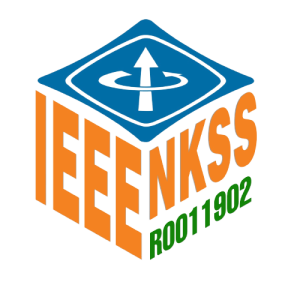[rev_slider alias=”demo-main” slidertitle=”Demo Main”][/rev_slider]

IEEE North Karnataka Sub-Section
Organized byView More

KLE Institute of Technology
Hosted byView More

IEEE Bangalore Section
Co-sponsored byView More
Registration Closed and Schedule is prepared
click here to know your paper schedule
Important dates
Paper Submission Heard Deadline
Closed
Acceptance Notification
1st to 10th September 2025
Registration Deadline
5th-to-12th September 2025
Conference Date
27th and 28th September 2025
Registration details
Indian Author
₹ 8,000 : Non- IEEE Member Authors
₹ 6,000 : IEEE Member Authors
Indian Delegates
₹2000 :
Non- IEEE Members (Co-Authors / Participants / Accompanying Persons)
₹1000 :IEEE Members (Co-Authors / Participants / Accompanying Persons)
Foreign Authors & Delegates
$150 : Foreign Authors
$50 : Foreign Delegates
What Make Us Spcecial? NKCon-2025
The subsection organizes seminars, workshops, webinars, and technical talks for professionals and students in the region. These events cover diverse engineering and technology domains like electronics, telecommunications, computer science, electrical engineering, and more.
About Our Conference NKCon-2025
NKCON is the flagship International Conference of the IEEE North Karnataka Sub Section with keynote addresses by reputed academicians and high-quality presentations from the best researchers in and around India. The Conference aims to provide an active platform for research scientists, engineers, and practitioners throughout the world to present their latest research findings, ideas, and applications in the fields of interest that fall under the scope of IEEE. TNKCon 2025 will be hosted by KLE Institute of Technology, Hubballi (KLEIT) , from September 27 to 28, 2025.
Call for Papers NKCon-2025
Dear Researcher,
On behalf of the IEEE North Karnataka Subsection (NKSS) and the organizing committee of NKCon-2025, we are pleased to invite you to participate in our flagship conference. NKCon-2025, the premier annual conference of IEEE NKSS, brings together technologists, engineers, scientists, investors, and representatives from NGOs, government, academia, and industry to foster research and innovation.
The fourth edition of NKCon-2025 is scheduled for September 27-28, 2025, and will be hosted by KLE Institute of Technology, Hubballi. The conference aims to promote research and development by providing a platform for the exchange of cutting-edge ideas and advancements in various fields.
Enclosed is the Call for Papers for your reference. We assure you of a technically enriching and vibrant experience at NKCon-2025, and we are confident that your participation will be both rewarding and memorable.
For more details: nkcon2025@ieeenkss.org
Dr. Manu T. M. & Mr. Abhishek Deshmukh
General Chairs, IEEE NKCon-2025
Conference Tracks
Track 1: Communication and Signal Processing
Network protocols, Mobile computing, Mobile ad hoc networks, Mobile agents, Network architectures, Quality of services, Cross-layer design/optimization, Design and performance evaluation, Traffic control, Wireless systems, MU-MIMO systems, Optoelectronics and Optical Communication. Image processing, Computer vision, Bio-image processing, Audio/video processing, Data processing, Estimation and identification, Remote sensing, Information fusion, Brain computer interface, Signal transforming and filtering, Digital system design and structures, Optimization techniques.
Track 2: Power Electronics and Control Systems
Power devices and components, Power quality control, FACTS, PFC, STATCOM, Harmonic analysis and compensations, Switching circuits and power converters, Motors and drives, Smart grid, Distribution generation and electrical vehicles, Wireless power transmission, Energy harvesting. Adaptive and intelligent control, Distributed and decentralized control, Games, Hybrid control, Networked control, Nonlinear systems, Optimization and optimal Control, Predictive control, Process control, Robust control, System identification and filtering, Uncertain systems, Control system applications.
Track 3: Robotics and Automation Systems
Robotics vision, Visual servoing, Visual servoing simulation, SLAM, LIDAR, Sensors and sensor fusion, Actuators, Motion control, Robot-human collaboration, Remote operation, Autonomous mobile robot, 3D simulation, Off-line programming, AI application in robotics, Industrial application case study
Track 4: Artificial Intelligence and Machine Learning
Natural language interaction, Text analysis, Image analysis, Video analysis, Speech recognition, Object recognition, Gesture recognition, Statistical learning, Machine learning, Deep learning, Reinforcement learning, Predictive analytics, Data analytics, Knowledge representation, Reasoning, Neural networks, AI applications, Design for AI chip and systems
Track 5: Computing Devices and Circuits
Including Advanced CMOS, post-CMOS, Quantum Computing, Cryogenic Circuits) Novel devices and circuit concepts that improve existing and enable novel computing paradigms. Included in the scope of this track are Advanced CMOS and beyond CMOS transistor (e.g. tunnel FET, negative capacitance FET), transistors based on low- dimensional systems (e.g. 2D materials, nanowires, and quantum dots), and on topological insulators, as well as phase transitions transistors and all kind of circuit implementations with such devices. Qubit devices for quantum computing enablement and all related Cryogenic Circuits are welcomed. Non-charge-based logic devices and circuits (e.g. magnetic logic, spintronics, and plasmonics) are also key topics of this track.
Track 6: Learning Computer and Software Engineering
Computer-aided engineering, Cryptographic engineering, Information engineering, Tele-traffic engineering, Web engineering, Finite Element Analysis (FEA), Computational Fluid Dynamics (CFD), Multi-body dynamics (MBD), theory of computation, Information and coding theory, Algorithms and data structures, programming language theory, formal methods, artificial intelligence, computer architecture and engineering, computer performance analysis, computer security, computational science, computer networks, concurrent, parallel and distributed systems, data bases
Track 7: Electric Vehicle and Grid Integration
AI-Enabled Smart Drives, BMS, Cell balancing, Charge controlling techniques, charging stations, impact of EV on grid integration, Charging station infrastructure, Control strategies, motor drives, Communication aspect in EV, AI in EV.
Track 8: Intelligent Mobility and Visual Intelligence
Safety, connected Autonomous Vehicles, mobility,Advanced Driver Assistive Systems, Perception, avigation and Control,Vehicular communication ADAS, Connectivity, Security, Vehicular to Vehicular, Vehicular to Grid, AI/ML/DL enabled techniques/frameworks Digital Heritage, Agriculture, and Smart Manufacturing,edge AI computing, low processing, multi-objective solutions Restoration, Enhancement, Categorization, Clustering, Classification, Scene Understanding, Object Detection, and Tracking.
Track 9: Intelligent Solutions in Healthcare applications
Health Care applications of AI and Computer Vision, Medical Diagnosis, medical image reconstruction, restoration, registration, segmentation, classification, visualization, and prediction, reliable and economical healthcare solutions.
Submit your paper
